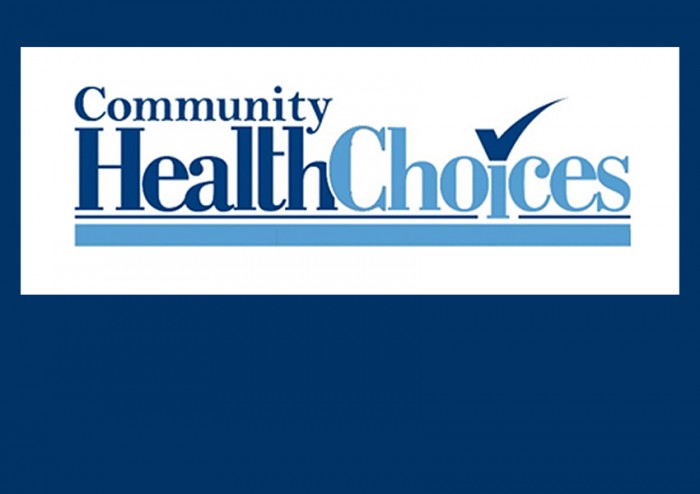PA House Files Resolution That Would Impeach Governor Wolf for Misbehavior in Office
Yesterday, Representative Darryl Metcalfe (with 24 Republican co-sponsors) introduced HR 915, Governor Wolf Impeachment Resolution. HR 915 (resolution language is not currently available online) contains 5 articles of impeachment against Governor Wolf for misbehavior in office. The resolution contends that the Governor’s COVID-19 related orders and actions violated the First, Fourth, Fifth, and Fourteenth Amendments of the US Constitution and rights within the Pennsylvania Constitution.
The House alleges that the Governor’s COVID-19 response mandating business closures, and designating businesses as non-life sustaining, as well as the creation of the business waiver process (designating a business as essential) caused historical unemployment rates and unemployment compensation benefit deployment issues. The Governor allegedly failed to address nursing home risks, preventing deaths, and he refused to comply with Right-to-Know (i.e. Public Disclosure) laws.
HR 915 has not been assigned to a House Committee for further consideration as of yet. View the Press Release.
Gov. Wolf: $157.5 Million Now Available for School Health and Safety Grants to Address COVID-19
CHC Third Thursday Webinar Planned for June 18
Members are encouraged to register to participate in the Community HealthChoices (CHC) Third Thursday coming up on June 18, 2020 from 1:30 pm – 3:00 pm. The webinar this week will focus on updates on COVID-19 by new Deputy Secretary of the Office of Long-Term Living (OLTL), Jamie Buchenauer. To participate, registration is required. Following registration, a confirmation email will be sent that contains information about joining the webinar.
Questions about the webinar should be directed to the OLTL Bureau of Policy Development and Communications Management at 717-857-3280.
ANCOR Celebrates Members this Week!
Gov. Wolf Announces $260 Million in Funding to Help People with Intellectual Disabilities and Autism During Pandemic
Implementation of EVV in the FFS and Physical Health Managed Care Delivery Systems
The purpose of this bulletin is to advise providers of the implementation of electronic visit verification (EVV) for personal care services (PCS) for individuals under 21 years of age, effective with dates of service on and after September 1, 2020.
Department of Health Announces Additional Partnerships to Assist with COVID-19 Response
Pennsylvanians Must Remain Vigilant about Preventing Child Abuse and Keeping All Kids Safe
FOR IMMEDIATE RELEASE
June 11, 2020
Harrisburg, PA – Today, Department of Human Services (DHS) Secretary Teresa Miller urged Pennsylvanians to remain vigilant in our shared responsibility to keep all children safe and prevent child abuse. DHS administers ChildLine, which is a 24/7 hotline available to anyone concerned for the safety or well-being of a child. To report a concern, call 1-800-932-0313.
“While Pennsylvania begins to reopen and some of our lives get back to something close to normal, I want to remind my fellow residents that there are many people – particularly among vulnerable populations – who will continue to feel the effects of this public-health crisis for many months and years to come. And some are still in the shadows,” Secretary Miller said. “We all have a role to play to keep children safe. If you suspect a child is being abused or neglected, please call ChildLine to make a report.”
In the weeks immediately following the implementation of aggressive social-distancing measures to slow the spread of the coronavirus, DHS saw a roughly 50 percent decline in average daily calls to ChildLine compared to the same time period in 2019. This decrease in calls is most likely an unfortunate side effect of school closures and limited interactions between children, their teachers and other mandated reporters in school settings. Of the 39,040 reports made by mandated reporters to ChildLine in 2018, for example, more than a third were reported by school employees.
To address the reduction in calls, DHS has prioritized outreach to stakeholders and external communication efforts to encourage members of the public to be on the lookout for signs of abuse or neglect among children in their community and to call ChildLine if they suspect a child is in danger. Between May 1 and May 28 of this year, ChildLine received 14,181 calls from concerned citizens — down from 23,536 calls during the same time period in 2019, or a roughly 40 percent reduction.
“Calls to ChildLine normally drop during the summer months when schools are closed, but this should only reinforce our efforts to be vigilant about our responsibility to protect all children,” Secretary Miller said. “Each and every one of us can play a role in protecting children from abuse or neglect. Making the call to ChildLine allows trained child welfare professionals and, if necessary, law enforcement to follow up, collect information, and determine if assistive services or other intervention is necessary.”
Anyone can make a report to ChildLine. Anyone who is not a mandated reporter can make a report to ChildLine anonymously. DHS is encouraging all Pennsylvanians to learn more about the signs of potential abuse or neglect and make a report to ChildLine if they begin to suspect abuse or neglect.
Signs of potential abuse or neglect can include:
- Numerous and/or unexplained injuries or bruises;
- Chronic, pronounced anxiety and expressed feelings of inadequacy;
- Flinching or an avoidance to being touched;
- Poor impulse control;
- Demonstrating abusive behavior or talk;
- Cruelty to animals or others; and,
- Fear of parent or caregiver, among others.
DHS also encourages parents and families who are struggling to cope during this time of crisis to reach out for help. Anyone struggling with mental health and in need of referrals to helpful programs can call Pennsylvania’s new Support & Referral Helpline, which is operated 24/7 by skilled caseworkers who can provide emotional support during this difficult period. The number to call is 1-855-284-2494. For TTY, dial 724-631-5600. Another helpful resource is the 2-1-1 hotline operated by the United Way, which can connect people and families to local resources that can help during the public health crisis.
MEDIA CONTACT: Erin James, ra-pwdhspressoffice@pa.gov
# # #
DHS Issues RFA for Regional Response Health Collaboration Program
Today, the Department of Human Services (DHS) announced a Request for Applications (RFA) for its new Regional Response Health Collaboration Program (RRHCP). The RRHCP is designed to directly support COVID-19 readiness and response in long-term residential care facilities, improve infection prevention, and facilitate continuity of care and other services provided by long-term care facilities in a manner that mitigates risk of spread of COVID-19 to staff or residents.
More than 45,000 Pennsylvanians live in more than 1,200 personal care homes and assisted living residences, and more than 80,000 residents live in 693 skilled nursing facilities (SNFs) throughout the Commonwealth. These residents are often some of the most vulnerable and susceptible to COVID-19 due to age, presence of existing health conditions that may lead to complications, and the congregate nature of these facilities.
The RRHCP will provide operations, management, and administrative support to protect residents in long-term care facilities from COVID-19. It will help those facilities implement best practices in infection control, implement contact tracing programs in facilities, support clinical care through on-site and telemedicine services, provide remote monitoring and consultation with physicians, and enhance testing capability for both individuals in care and staff at facilities. The RRHCP will assist in identifying alternate care arrangements for hospitalized COVID-19 patients until they are considered no longer infectious and can be safely returned to their long-term care facilities.
The RRHCP is based on the Educational Support and Clinical Coaching Program (ESCCP), a learning network that provides technical assistance and educational support to long-term care facilities in light of the current pandemic. Unlike the ESCCP, which operates on a voluntary basis, the RRHCP will operate under grant agreements. Selected grantees will be awarded $175 million collectively, with funding approved by the General Assembly.
Responses to this RFA are due by June 25, 2020. Applicants can submit questions by no later than June 15, 2020. Applications can be found online through eMarketplace. DHS hopes to have agreements in place for the RRHCP by July 1, 2020.
Guidance to DHS providers related to COVID-19 is available here.












